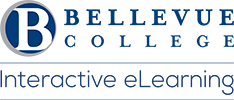by Brian Bergen-Aurand
Faculty nationwide who have worked with instructional designers say they have enjoyed the experience and report that their courses have benefited from the collaboration, according to a survey recently published in Inside Higher Ed. 93% of faculty describe the experience as positive or very positive, and nearly 70% agree or strongly agree that working with eLearning consultants improved the quality of their courses.
The 2019 Inside Higher Ed / Gallop Polling Survey on Faculty Attitudes on Technology was published at the end of October. This survey, which asks the opinions of 1,967 faculty and 178 digital learning administrators, represents one of the most extensive, ongoing appraisals of educators’ responses to digital learning in higher education. Overall, the survey asks about a wide range of technology, professional development, and other related issues, but the majority of its questions focus on faculty and digital learning professionals’ evolving attitudes toward online and hybrid education.
According to the results of this year’s survey, more faculty than in any previous study (46%, up from 39% in 2016) say they have taught online for credit, and more faculty, staff, and administrators than ever before seem to be accepting the role of online teaching in higher education. Of those instructors who have been involved in digital learning, a greater number than ever are also more positive about the potential for online courses to match the educational outcomes of onground courses. Alternatively, though, faculty who have never taught online are more likely to question the efficacy of digital learning. (Of course, one must wonder if these instructors are avoiding online teaching because of their beliefs or if their beliefs could be changed by the experience of teaching online.)
In addition, more than 75% of instructors who have taught online report that the experience has helped them acquire new skills, learn new practices, and, overall, improve their teaching, especially with regard to developing more and better ways of encouraging students to critically engage with course material and implementing better uses of multimedia content.
Unfortunately, the survey reports little change with regard to online assessment and evaluation, where faculty are still most likely to rely on student grades on exams when appraising the success or failure of their course design and delivery. Instructors do report also considering student progress on other assessments, competency in light of specified learning outcomes, engagement levels, and course feedback when evaluating their courses, but to a lesser extent.
And, despite the fact that so many faculty describe collaborating with instructional designers and instructional technologists as a good and beneficial experience, only a fraction of faculty are availing themselves of eLearning expertise and advice. Almost 70% of instructors say they designed and built most or all of their online courses, and 14% say they inherited most or all of their online material from a colleague. Among those instructors who teach online, only 17% report consulting with an instructional designer when building or remodeling their courses.
Alternatively, instructors report that they are most likely to consult with a colleague when reevaluating their online teaching. Following such collaboration, they turn to eLearning professionals, ITS staff, and student feedback when making changes in their courses. They do say they value professional development and training opportunities to improve their digital teaching.
Most importantly, instructors are expressing a clear opinion about how they want to be involved in and supported by their institutions when they engage in digital learning. Campus attitudes toward digital learning are evolving and more instructors (39%, up from 32% in 2018) increasingly support the use of educational technology in online, hybrid, and blended classes. Yet, a vast majority remain suspicious of outside vendors supplying online materials and courses. What faculty do want, however, is for their institutions to continue cultivating a climate that encourages digital learning innovation and experimentation, expanding professional development and training, developing instructional technology support, acknowledging and rewarding contributions to digital pedagogy, and compensating online course development.
For more commentary on the findings and to download the full report, go to:
Brian Bergen-Aurand is an Instructional Designer in eLearning and Faculty in Arts & Humanities. He specialized in questions of Digital Culture, Quality Standards (QOI, QM), and Course Review.
Last Updated November 2, 2020
